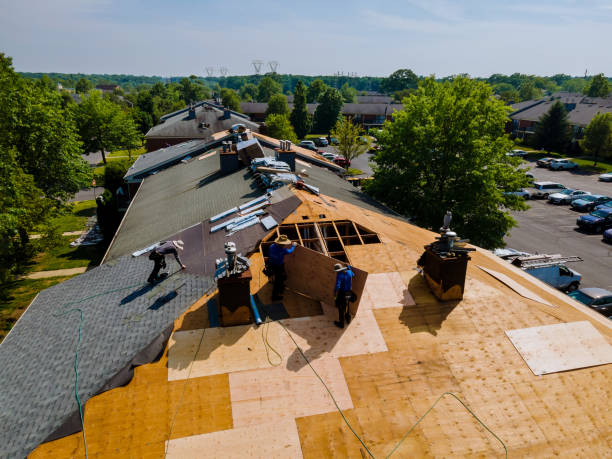Upgrading your home can feel overwhelming. Whether you’re thinking about adding space, increasing energy efficiency, or simply improving aesthetics, major home projects require thoughtful planning. It’s not just about choosing materials or hiring the right contractor—it’s also about timing, budgeting, and understanding what your home really needs.
Here’s what every homeowner should know before starting a major upgrade.
Know Your “Why”
Before you make any decisions, ask yourself why you’re planning this upgrade. Is your home outdated? Are you trying to fix something that’s broken? Maybe you want to boost your home’s resale value. Your motivation will shape your choices. Understanding your goal will also help you communicate clearly with contractors and stay focused during the project.
Understand the Scope of Work
A common mistake homeowners make is underestimating the size and cost of a project. Before work begins, get a full breakdown of what’s involved. That includes permits, inspections, timelines, and materials. Even small upgrades can lead to bigger structural issues if not carefully planned. Avoid surprises by understanding every part of the job.
Set a Realistic Budget
Budgeting isn’t just about materials and labor. You’ll need to plan for unexpected expenses, too. Set aside 10–20% of your budget as a buffer. Get multiple quotes from contractors. Don’t always go with the cheapest bid—experience and quality matter. A clear budget keeps your project on track and prevents stress later on.
Choose the Right Contractor
A major upgrade is only as good as the person doing the work. Ask for recommendations, read reviews, and check references. Make sure your contractor is licensed and insured. Don’t be afraid to ask questions about their experience with projects similar to yours. Good communication from the start will lead to a smoother process.
Plan for Disruption
Most upgrades will impact your daily life. Depending on the scope of work, you might deal with noise, dust, or limited access to parts of your home. In some cases, you may even need to stay elsewhere temporarily. Talk with your contractor about what to expect during the project. Knowing this in advance helps you prepare your family and minimize inconvenience.
Prioritize Structural Needs
It’s tempting to focus on cosmetic changes, but structure should come first. If your roof, plumbing, or foundation needs attention, address those issues before anything else. Upgrades like new cabinets or flooring won’t mean much if you’re dealing with leaks or structural damage later. Prioritizing essential repairs protects your investment.
Timing Matters
Some home upgrades are seasonal. For example, work that involves roofing or exterior improvements may be best scheduled during dry months. Planning around the weather can reduce delays and improve results. Contractors are often booked during peak seasons, so schedule early to avoid long wait times.
Think Long-Term
A good upgrade improves your home today and adds value for years to come. Choose materials that last. Make design choices that fit your lifestyle now and in the future. Think about energy efficiency and maintenance needs. What seems trendy today might feel outdated in a few years, so focus on timeless quality.
Consider a Roof Installation
If your home is more than 20 years old or you’ve noticed leaks, missing shingles, or sagging areas, it may be time to explore a roof installation services near me. A new roof protects your home from the elements, improves insulation, and can increase resale value. Investing in a new roof now can prevent major damage later.
Don’t Overlook a Roof Replacement
Sometimes repairs aren’t enough. If your roof has recurring problems or widespread damage, a full roof replacement services near me might be necessary. Though the upfront cost is higher, replacement ensures long-term protection and reduces future maintenance. Talk to a professional to evaluate your roof’s condition before making a decision.
Final Thoughts
Major home upgrades can be rewarding, but they require careful planning and smart decisions. From setting goals to hiring the right help, each step matters. Focus on structural integrity, realistic budgets, and quality workmanship. With the right approach, your investment will pay off in comfort, value, and peace of mind.









